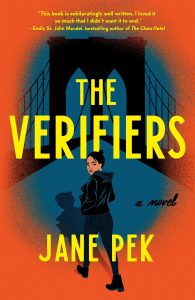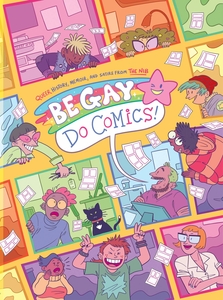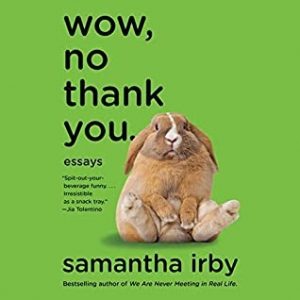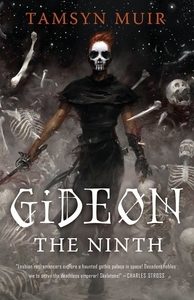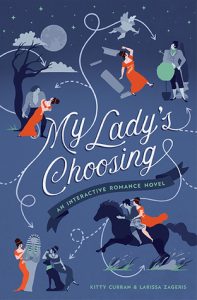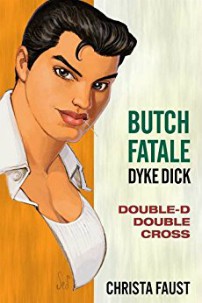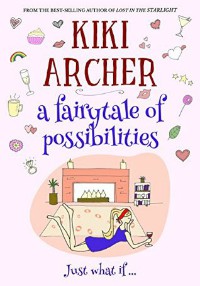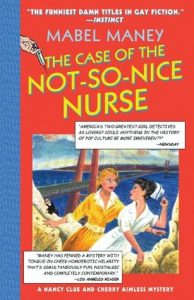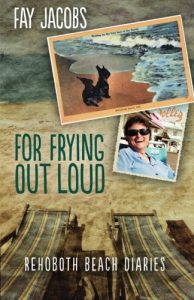Amazon Affiliate Link | Bookshop.org Affiliate Link
Are you looking for a dystopian mystery in the vein of Dave Eggers’s The Circle, with a high stakes, lesbian Nancy Drew vibe and a heaping side of Person of Interest (where no gays are harmed in the making)? Then this is the book for you, my friend. Part speculative fiction and part murder mystery, Jane Pek’s The Verifiers is set in a world (or future) where matchmaking services are the most common way to find a partner, not entirely unlike current times, though their algorithms and importance in this novel’s society are more extreme.
The data collected is even more invasive than what exists in our real world, collection that all but completely eliminates your privacy in order to best fulfill your needs. Enter our aspiring dating detective, Claudia Lin, who works for a company called Veracity, every bit as secretive as the CIA. Her job as the newest member of the team is to help make sure that the people on these ubiquitous dating apps are who they actually claim to be.
Claudia is curious to a fault, a natural problem solver, an avid fan of detective novels, and stubborn enough to get herself into a bit of a situation when she can’t let an unsolved mystery drop. She’s young and sometimes makes questionable decisions. But while there are serious themes explored in the book, it doesn’t take itself too seriously. The Verifiers is a murder mystery that grows into a twisty, fun house mirror conspiracy where one can’t quite figure out who to trust.
Pek sweetens the deal by treating you to a a smart, sarcastic underachieving protagonist, one who also happens to be queer and Asian. Additionally, there’s some complex family drama afoot and some social commentary on how technology affects our lives. More of this is explored at the end during the “big reveal,” including a look at how the creators of the technology justify their decisions in the name of providing a greater good.
The Verifiers made me think of Zen Cho’s writing style in Black Water Sister, both in Pek’s treatment of the main character and in the flow of the novel. There are similarities in the MC’s family issues, though instead of meddling aunties, we have a dysfunctional sibling and mother relationship. There’s an overarching mystery to be solved that transforms the MC in ways that allow her to deal with issues in her private life. Both novels have a steady, page-turning flow and a solid helping of witty, amusing internal dialogue that had me snorting out loud, the same brand of snark that had me chuckling through Cho’s book. If Black Water Sister was your cuppa, you will likely enjoy this as well.
And back to the sapphic aspect of this book, Claudia is queer (though not out to her mother), but this remains secondary to the story. We do still witness her dealing with issues in her personal life, sexuality included, as she navigates the challenges central to the book. There’s also some exploration of ethnicity and cultural identity in being an Asian American sprinkled throughout.
This is Pek’s debut novel! And while it’s a standalone, you can’t help but notice that she’s setting you up for a sequel, perhaps even a series. (Fingers crossed that this is true.) I would happily binge watch five seasons of this on Netflix, following our plucky verifier as she solves mysteries each episode within a larger overarching conspiracy, topped off with a slow burn workplace romance. Ahem, JJ Abrams, are you listening?

